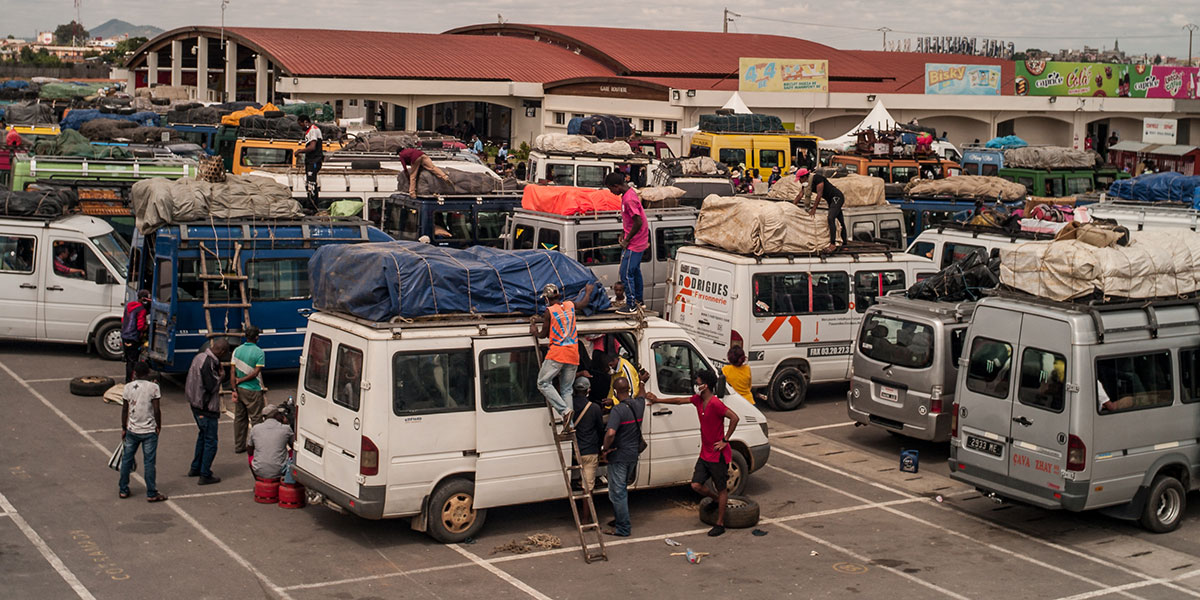In recent weeks, as some African countries have commenced with the easing of lockdown and emergency measures – mainly to address the devastating effects of the pandemic on economies – various issues and trends have started to emerge that impact the relations between citizens and institutions.
As some African countries have commenced with the easing of lockdown and emergency measures various issues and trends have started to emerge that impact the relations between citizens and institutions.
Tweet
Road transport: While flights remain closed, moving goods by road has increased. However, as most borders remain closed for people, this means that special arrangements have had to be made for drivers. In some countries, drivers change at the borders, whereas in others, they can enter but need to be tested for COVID-19 first. This has caused severe delays at border posts. For example, at border posts between South Africa and Botswana, truck drivers complained of ill-treatment as a result of constant COVID-19 testing, as well as of being stigmatised for fear of carrying the virus. A similar situation has been observed in East Africa, where mandatory COVID-19 testing for truck drivers has caused extensive delays at the busy Busia border post between Uganda and Kenya. As truck drivers have to remain at the border while undergoing tests, residents in the area have complained about an increase in various social ills. Ugandan cargo truck drivers have also experienced delays at the border with South Sudan while they get tested for COVID-19. The tankers have become a particular target by criminals, thus threatening the lives of these drivers.
Smuggling: Cross-border illicit trade is also an emerging trend. In South Africa, as the sale of tobacco remains banned, 46 boxes of contraband cigarettes, with an estimated value of R1.3 million, were confiscated in the week of 15 June during a patrol at the Farazella border crossing between South Africa and Mozambique. On 20 June, it was reported that a Kenyan plane delivered tonnes of khat to Somalia, which is one of the banned substances in Somalia in the context of limiting the spread of the virus.
Gender-based violence: Sexual and gender-based violence became a global concern as countries instituted lockdown measures. In Africa, during the lockdown period – and even as measures are gradually relaxed – the level of gender-based violence has increased. In Nigeria, a state of emergency was declared earlier in June over rape and other gender-based violence against women and children in the country. President Muhammadu Buhari addressed his concerns regarding acts of violence against women and children in a televised Democracy Day address on 12 June. Similarly, South Africa’s President Cyril Ramaphosa raised his concerns when he addressed the nation on the severe spike of violent crimes against women in the country, as the country eased into phase 3 of its lockdown.
Asylum-seekers and refugees: While some African governments have put measures in place to assist with livelihood insecurities, asylum-seekers and refugees have been hard hit as a result of the pandemic. As a means to address this pressing matter, in South Africa for instance, the Gauteng High Court ruled on 18 June that special permit holders and asylum-seekers must be included in the ZAR350 COVID-19 Social Relief of Distress grant, from which they had initially been excluded. The humanitarian crisis in the Sahel, exacerbated by the pandemic, has led the United Nations High Commissioner for Refugees (UNHCR) to appeal for US$186 million for the Sahel refugee and displacement crisis.
Tourism: Travel and tourism is a vital source of income and contributes significantly to local economies. In the wake of easing their lockdowns, some African countries have looked to opening their tourism sectors. For example, Egypt was granted a ‘Safe Travel Stamp’ from the World Travel and Tourism Council, according to the country’s Ministry of Tourism and Antiquities. In Morocco, domestic travel – including flights and railroad transportation – will resume following the easing of lockdown restrictions. Ethiopian Prime Minister Abiy Ahmed addressed the new opening of parliament on a range of issues around the government’s response to the COVID-19 pandemic, as well as the decision for Ethiopian Airlines to continue flights to many countries, including China. Working hand in hand with the World Health Organization (WHO), Namibia – which has the lowest number of COVID-19-registered cases in the Southern African Development Community (SADC) – embarked upon opening its economy to restart the stalled tourism industry. The Namibian government reopened parks and other leisure business activities. Opening the travel and tourism industry does come with its share of risks, in light of the rising number of infections occurring in parts of neighbouring countries and the region. Ghana has experienced a 24% increase in infections at the easing of its lockdown, which is a stark reminder that countries remain susceptible to the virus whilst they attempt economic recovery.
Marisha Ramdeen is senior programme officer within the Peacemaking Unit at ACCORD.

